Turning away from the news and attending with imagination to the “Oresteia” takes faith, both in God and in the wisdom of our forebears. This will be a worthier endeavor, both for the present moment and for the time to come, than trying to tear down the very structures that give us the promise of liberty.
 The events of the past week have been appalling. When protesters broke into the Capitol building last week, I was just finishing an op-ed piece about the threat that the Biden administration will pose to a Catholic education like ours—but suddenly, as with the attacks of September 11, 2001, such considerations would have to wait. The hijackers of 9/11 managed to destroy the World Trade Center and to damage the Pentagon, but Flight 93, aimed either at the White House or the Capitol, was stopped by the passengers on board. Ironically, in the homegrown efforts since Jan. 6, both Congress and the Presidency have suffered great losses. It is particularly ironic that the count of electoral votes should have been the occasion for the discord. Since the Founding, the electoral college has been one of the sure protections of a republican form of government against democratic passions.
The events of the past week have been appalling. When protesters broke into the Capitol building last week, I was just finishing an op-ed piece about the threat that the Biden administration will pose to a Catholic education like ours—but suddenly, as with the attacks of September 11, 2001, such considerations would have to wait. The hijackers of 9/11 managed to destroy the World Trade Center and to damage the Pentagon, but Flight 93, aimed either at the White House or the Capitol, was stopped by the passengers on board. Ironically, in the homegrown efforts since Jan. 6, both Congress and the Presidency have suffered great losses. It is particularly ironic that the count of electoral votes should have been the occasion for the discord. Since the Founding, the electoral college has been one of the sure protections of a republican form of government against democratic passions.
The present situation evokes passions, often extreme ones, and it makes us ask what it means even to attempt the settled, calm, slowly unfolding conversations that characterize the curriculum at Wyoming Catholic College.
We are confronting a set of events, not only beyond our power to tranquilize them in the mind, beyond our power to reduce them and metamorphose them, but events that stir the emotions to violence, that engage us in what is direct and immediate and real, and events that involve the concepts and sanctions that are the order of our lives and may involve our very lives.
Exactly. In 1942, when the poet Wallace Stevens spoke these words at Princeton, the world was at war, and the United States had only recently joined the conflict. Hitler, Stalin, and Mussolini, the ideological tyrants who have become bywords in the vocabulary of evil, were all alive and at work in the world. What Stevens argues in his essay, however, is that the obligation of the poet—and, I would argue, the obligation of our college—is to press back against what Stevens calls the “pressure of reality” that he has described and to seek a nobility that does not exist without the imagination.
In many contemporary colleges, the pressure of reality has led to so-called “cancel culture,” which interprets reality only in terms of race, class, and gender, rejecting any viewpoint that does not express explicit—preferably fawning—support for the ongoing cultural revolution. Any judgment upon the programmatic shift away from traditional thought, however, quickly earns the label of “hate-speech,” and any text from the past that might challenge students to think outside the narrow woke frame must be banished.
In a recent, widely publicized article from the Wall Street Journal, Meghan Cox Gurdon writes about a Massachusetts school where a teacher bragged that they had eliminated the Odyssey from their curriculum in order to teach their students contemporary young adult literature. The uproar against this absurdity has been heartening. Such cancellations mean abandoning the very attempt to challenge the young with what is truly “other,” not least beauty and nobility. The imposition of time-serving ideology makes it difficult for students to escape from the provincialism in time that binds their teachers.
Since antiquity, the best antidote to the myopia of the present moment has been classical wisdom. The classics unerringly reveal that the situation of crisis in which we find ourselves is not the worst ever. In fact, crisis is so typical of human affairs that it has required the whole course of human thought, not to mention the intervention of divine grace, to help us learn to deal with such situations. For example, after the passions of the Revolution, the Framers of 1787 reflected on their long study of history and classic literature, and they saw clearly that direct elections by the people should be avoided, either elections for the U.S. Senate in the various states or for the Presidency in the nation as a whole—hence, the electoral college. A century ago, the “pressure of reality” led to the Seventeenth Amendment (ratified in 1913), which gave the election of senators directly to the people—arguably an erosion of original principles.
Was the Constitution anti-democratic? Yes, in the sense that the Founders preferred a form that allowed the cooling of the passions. They understood and tried to prevent what most often happens when the passions of the people are most directly engaged, as we have seen in these past days. “In all very numerous assemblies, of whatever characters composed,” Publius wrote in Federalist 55, “passion never fails to wrest the scepter from reason. Had every Athenian citizen been a Socrates; every Athenian assembly would still have been a mob.”
In the present moment, the classical work most likely to help us is one from the early fifth century B.C., Aeschylus’ Oresteia, which brings onstage those powers of darkness known as the Furies. As Lewis Hyde puts it in his very valuable and timely book A Primer for Forgetting, the Furies “cling to the memory of hurt and harm, injury and insult. Their names are Grievance, Ceaseless, and Bloodlust. Their names are Grudge, Relentless, and Payback. They bloat the present with the undigested past.” On the other hand, if they are ignored, censored, and humiliated, they will find a way to wreak havoc.
The Furies have full sway at the moment. The real plot of Aeschylus’ great trilogy is finding a place for these ancient powers in the city, so that they become Eumenides, embodying “good wrath.” Their purpose of justice is shared with Athene, which keeps them from the biding grievance and flaring violence that threaten the very possibility of good order. Turning away from the news and attending with imagination to the Oresteia, as our freshmen will do in the upcoming semester, takes faith, both in God and in the wisdom of our forebears. Yet doing it will help form the nobility necessary to subdue those dark passions of the human heart that divide us and strengthen the imagination necessary to live within the wisdom of time-honored forms. This will be a worthier endeavor, both for the present moment and for the time to come, than trying to tear down the very structures that give us the promise of liberty.
Republished with gracious permission from Wyoming Catholic College‘s weekly newsletter.
The Imaginative Conservative applies the principle of appreciation to the discussion of culture and politics—we approach dialogue with magnanimity rather than with mere civility. Will you help us remain a refreshing oasis in the increasingly contentious arena of modern discourse? Please consider donating now.
The featured image is “Orestes Pursued by the Furies” (1862) by William-Adolphe Bouguereau (1825–1905) and is in the public domain, courtesy of Wikimedia Commons. It has been brightened for clarity.


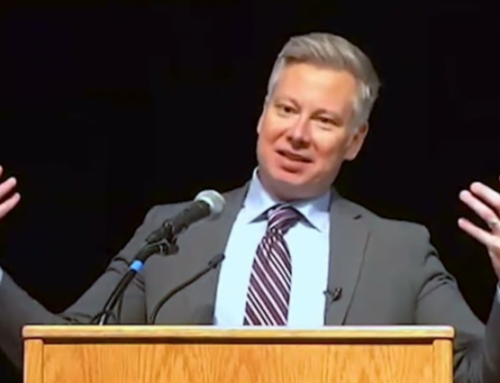
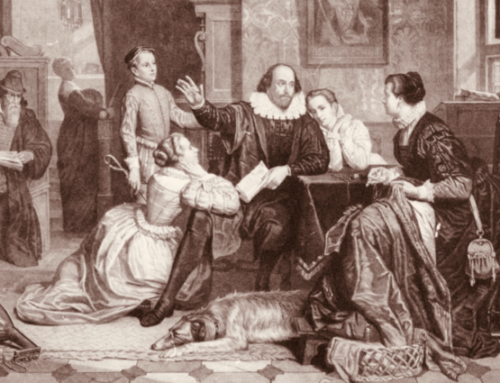
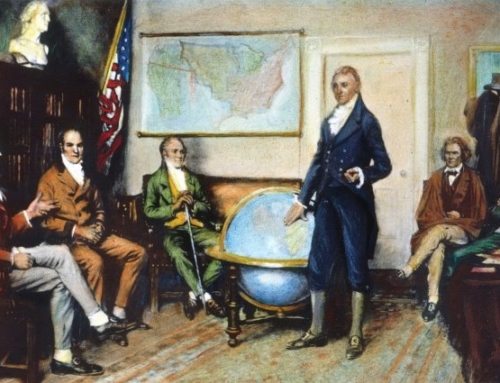
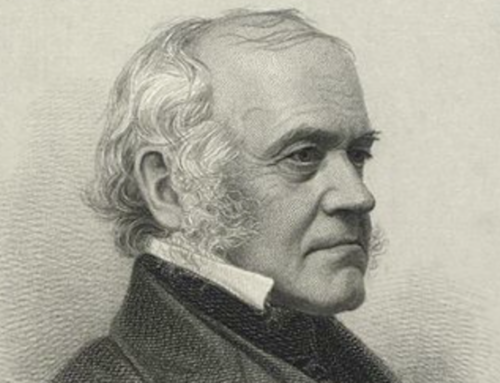
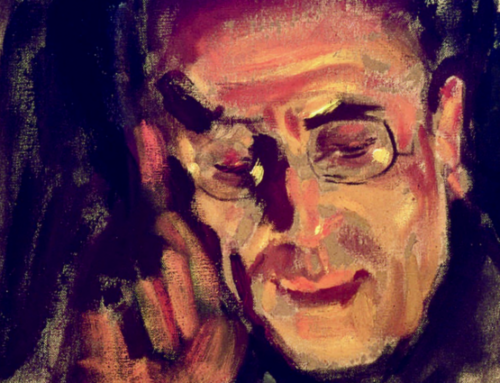
Dear Glenn,
Excellent and timely essay. I was reading the Oresteia in connection with The Family Reunion just this week and had the same thought.
I hope you and Virginia and your students are all well in these trying times. Jewel
Jewel, what a delight to hear from you! Thank you for your good wishes. We have both had the famous coronavirus but came through it without too much drama. I hope you and yours are well.
Glenn
Please, Title and artist of the FURIES painting
It’s noted at the bottom of the essay, to wit: The featured image is “Orestes Pursued by the Furies” (1862) by William-Adolphe Bouguereau (1825–1905) and is in the public domain, courtesy of Wikimedia Commons. It has been brightened for clarity.